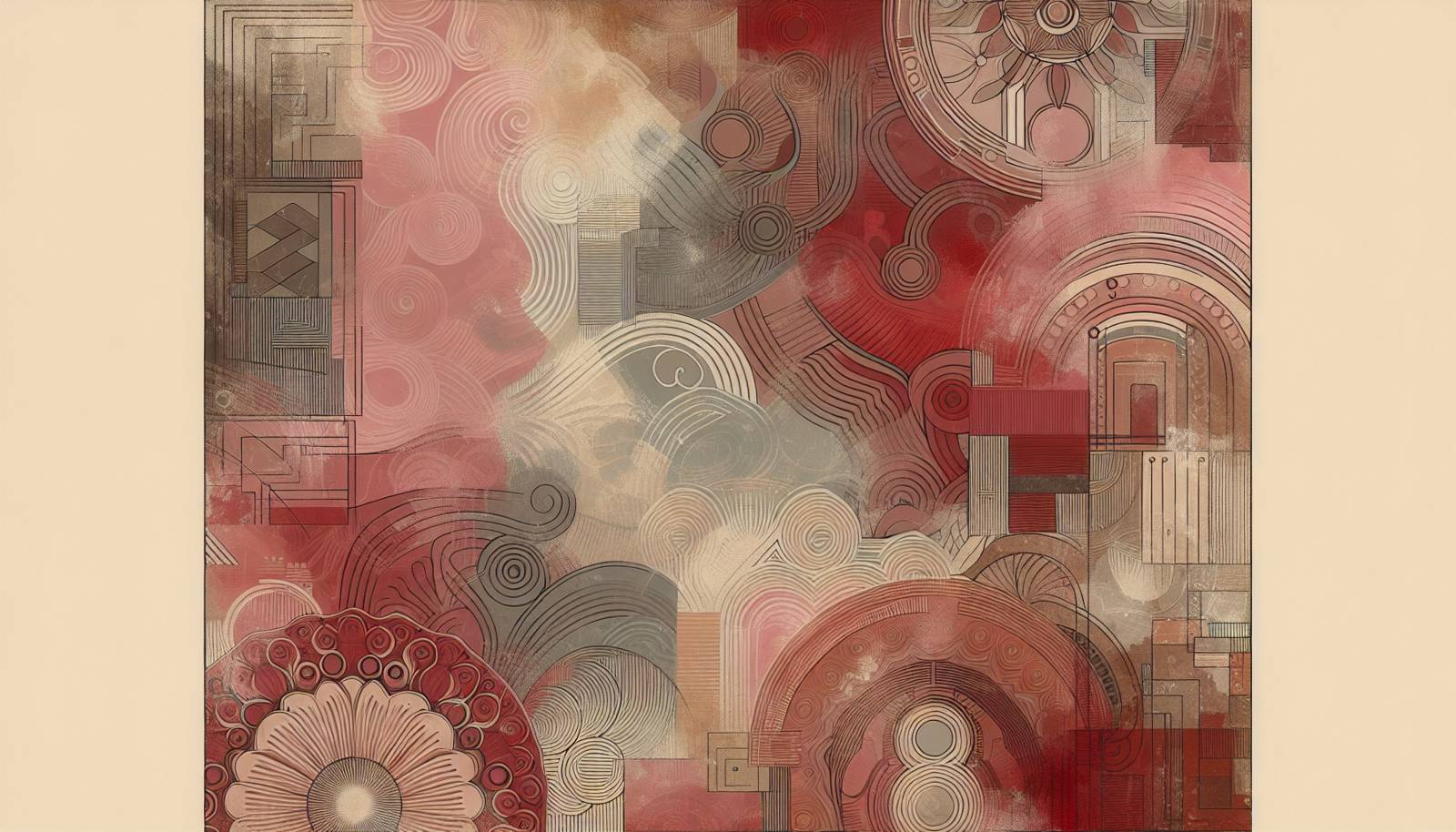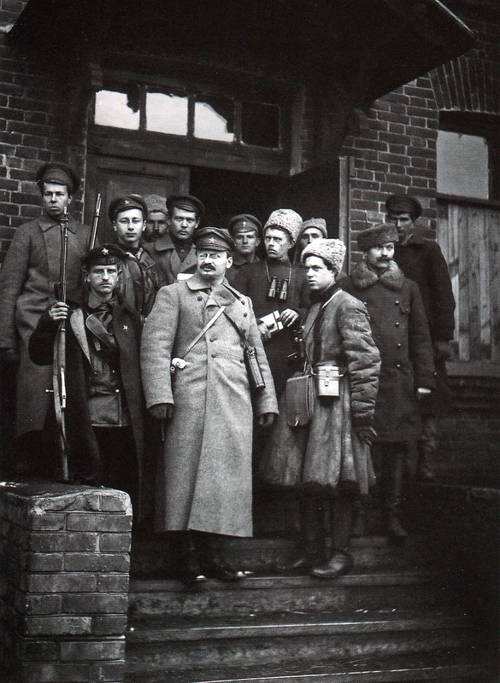
FAQ About Leon Trotsky

Who was Leon Trotsky?
Leon Trotsky was a revolutionary leader and Marxist theorist who played a significant role in the early formation of the Soviet Union. He was the leader of the Red Army during the Russian Civil War and a key figure in the Bolshevik Revolution. Trotsky was known for his contributions to Marxist theory and his opposition to Joseph Stalin's policies.

What role did Leon Trotsky play in the Russian Revolution?
During the Russian Revolution, Leon Trotsky was a prominent Bolshevik leader and a close ally of Vladimir Lenin. He played a pivotal role in organizing the October Revolution of 1917, which led to the overthrow of the provisional government and the establishment of Soviet power. As People's Commissar for Foreign Affairs, he helped negotiate the Treaty of Brest-Litovsk, and later as head of the Red Army, he was instrumental in the Bolsheviks' victory in the Russian Civil War.

How did Leon Trotsky contribute to Marxist theory?
Leon Trotsky made several significant contributions to Marxist theory, including the development of the theory of Permanent Revolution. This theory argued that in countries lacking a fully developed bourgeoisie, the working class could initiate a revolution, leading to a socialist society prior to capitalist development. Trotsky also emphasized the importance of internationalism and the global nature of class struggle.

What is the theory of Permanent Revolution associated with Trotsky?
The theory of Permanent Revolution is a Marxist theory developed by Leon Trotsky. It posits that in less economically developed countries, the working class can and should lead a socialist revolution before classical bourgeois capitalist structures are fully established. Trotsky argued that such revolutions must also spread internationally to succeed, as isolated socialist states would struggle to survive.

Why did Leon Trotsky become an opponent of Joseph Stalin?
Leon Trotsky became an opponent of Joseph Stalin due to several ideological and political disagreements. Despite both being members of the Bolshevik leadership, their visions for the Soviet Union diverged significantly. Trotsky was critical of Stalin's bureaucratic approach, his policies of "Socialism in One Country," and the suppression of dissent within the Communist Party. This opposition led to Trotsky's eventual expulsion from the Soviet Union and later assassination.

What happened to Leon Trotsky after he was exiled from the Soviet Union?
After being expelled from the Soviet Union in 1929 due to his opposition to Stalin's policies, Leon Trotsky sought refuge in several countries, including Turkey, France, and Norway. Ultimately, he was granted asylum in Mexico, where he continued to write and critique the Soviet regime. In 1940, Trotsky was assassinated in Mexico City by Ramón Mercader, a Soviet agent sent by Stalin.

How did Leon Trotsky die?
Leon Trotsky died on August 21, 1940, after being attacked the previous day by Ramón Mercader, an assassin linked to Soviet intelligence. Mercader used an ice axe to severely wound Trotsky in the head while he was in his study in Mexico City. Trotsky succumbed to his injuries despite medical intervention, confirming Stalin's involvement in orchestrating the assassination.

Where is Leon Trotsky buried?
Leon Trotsky is buried in the garden of his former home in the Coyoacán neighborhood of Mexico City, which is now the Leon Trotsky Museum. The museum preserves his memory and work, including the study where he was assassinated and the resting place marked by a simple monument.

What was Leon Trotsky's role in the Red Army?
Leon Trotsky was the founder and leader of the Red Army, serving as People's Commissar for Military and Naval Affairs from 1918 to 1925. He played a crucial role in organizing and leading the Red Army during the Russian Civil War, implementing strict discipline and innovative military strategies that contributed to the Bolshevik victory over the opposing White forces.

How did Leon Trotsky influence the Russian Civil War?
Leon Trotsky significantly influenced the Russian Civil War through his leadership of the Red Army. As its head, he transformed the disorganized revolutionary forces into a disciplined military, contributing to the Bolsheviks' eventual victory against the White forces and other opposition groups. His strategic acumen and commitment to the revolutionary cause were crucial in consolidating Bolshevik power.

Did Leon Trotsky have any successors in his political movement?
Following his expulsion from the Soviet Union, Leon Trotsky continued to promote his beliefs through the creation of the Fourth International in 1938, aiming to build a global revolutionary movement. After his assassination, the movement was fragmented, but several groups around the world continue to advance Trotskyist ideas today, though without a single, unified leadership that could be considered a direct successor.

What was the Fourth International?
The Fourth International was an international communist organization founded by Leon Trotsky in 1938. It was intended to be an alternative to the Third International, which Trotsky believed had been compromised by Stalinist policies. The Fourth International aimed to unite revolutionary socialists to fight for world socialism, advocating for Trotsky's principles and the theory of Permanent Revolution.

How did Trotsky's ideas differ from Lenin's?
Trotsky and Lenin shared numerous revolutionary ideas, particularly during the Bolshevik Revolution. However, some differences were evident, especially regarding the approach to the international revolution. While both believed in the global nature of proletarian struggle, Trotsky's theory of Permanent Revolution suggested a more continuous and international revolutionary process than Lenin’s initial and more classical Marxist approach. Additionally, Trotsky was known for resisting the increasing authoritarianism that emerged under Lenin's leadership in the Soviet state.

What were some of Trotsky's key works?
Leon Trotsky authored several significant works including "The History of the Russian Revolution," which provides an in-depth account of the Bolshevik Revolution; "The Permanent Revolution," where he expounds on his revolutionary theory; and "My Life: An Attempt at an Autobiography," which offers personal insights into his life and ideological development. These works continue to be influential in Marxist and socialist circles.

What was Trotsky's relationship with Lenin like?
Leon Trotsky and Vladimir Lenin shared a partnership based on mutual revolutionary goals, particularly during the Russian Revolution and its immediate aftermath. Though initially on different sides within the socialist movement, Trotsky joined the Bolsheviks in 1917 and became a trusted ally of Lenin. They collaborated closely on many political strategies and military efforts to solidify communist power, despite occasional ideological disagreements.

How did Trotsky's early life influence his revolutionary activities?
Leon Trotsky was born Lev Davidovich Bronstein in 1879 in Ukraine, then part of the Russian Empire. His early exposure to radical ideas came from his education and participation in underground socialist circles. Arrested multiple times for revolutionary activities, he spent several years in exile, where he developed his ideas and connected with other key figures of the Russian socialist movement. His commitment to combating Tsarist autocracy laid the groundwork for his later revolutionary activities.

What is Leon Trotsky's legacy today?
Leon Trotsky's legacy is multifaceted, encompassing his contributions to Marxist theory, his role in the Bolshevik Revolution, and his opposition to Stalinism. Trotsky's ideas continue to influence various socialist and leftist movements worldwide, particularly those aligned with Trotskyism, which advocates international revolution and critiques authoritarian practices within socialist states.

Were there any known plots against Trotsky before his assassination?
Before his assassination in 1940, Leon Trotsky was aware of the threats against his life due to his outspoken criticism of Stalin. Prior to his death, several plots to kill him were discovered, and his residence in Mexico was heavily guarded. The unsuccessful attempt on his life by a group of armed Stalinist agents in May 1940 demonstrated the ongoing danger he faced from the Soviet government.

How has Trotsky been depicted in popular culture?
Leon Trotsky has been depicted in various forms of popular culture, ranging from literature to film. His complex persona and dramatic life story have inspired plays, such as "Trotsky in Exile" by Peter Weiss, and films, like "Frida," which touches upon his time in Mexico. Additionally, his ideological battles and assassination have been explored in numerous documentaries, portraying both his political influence and personal life.

What was Trotsky's influence on international socialism?
Leon Trotsky's influence on international socialism stemmed primarily from his advocacy of the Permanent Revolution and opposition to Stalinism. By founding the Fourth International, he sought to unite revolutionary socialists globally against fascism and Stalinist suppression. Trotskyism, as his ideology is known, continues to impact socialist movements worldwide, promoting internationalism and critique of authoritarian governance.
